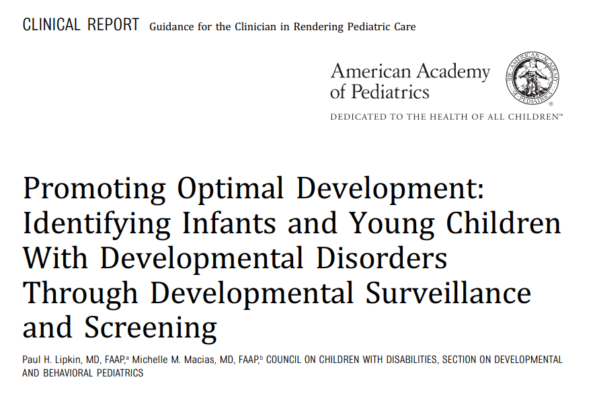Evaluating Model Programs to Support Dissemination: An Evaluation of Strengthening the Developmental Surveillance and Referral Practices of Child Health Providers

In this article, the author, Dr. Kathleen McKay, evaluates the Strengthening the Developmental Surveillance and Referral Practices of Child Health Providers project, which was designed to educate Connecticut’s community-based child health providers in the early detection and identification of childhood developmental and behavioral concerns and in the use of the referral system element of the Help Me Grow Model.
Dr. McKay’s evaluation included process measures, which tracked program activities; impact measures, which examined whether the training changed developmental surveillance and referral patterns within participating practices; and outcome measures, which assessed provider and staff satisfaction with the training and changes in attitudes toward developmental surveillance and referral.
The impact evaluation was designed to determine whether the intervention was effective, using three questions: (1) Is the rate of developmental surveillance for intervention practices higher after training?; (2) Is developmental surveillance more comprehensive in intervention practices after training?; and (3) Are intervention practices more likely to refer to the Help Me Grow Model following training?
Key Points From Evaluation
- Evaluation of developmental programs should consider process, impact, and outcome measures.
- Brief, in-office training for community-based child health providers was successful in influencing provider and practice behavior.
- Training increased the identification of children with developmental and behavioral concerns, as well as referrals to the Child Development Infoline (CDI).


